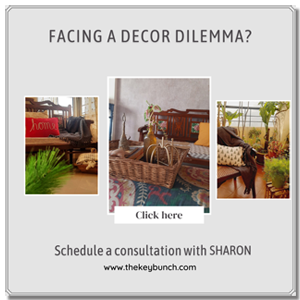
Welcome to Raja’s Cottage – a 90+ year old home in Mangalore.
Now restored, the old house had many issues that needed attention. Says Apeksha Naik, whose family owns the home, “Old mud walls, red oxide floor loosing its stain and texture, discomfort without attached bath areas and wardrobe spaces in bedrooms, inadequate lighting in the entire home, addition of new furniture in the recent past that didn’t sit well with the theme of the house and mainly lack of strength in the old structure are few of the reasons we decided to revamp our old space.” She planned and executed the renovation through her firm Hiraya Design Studio.

It is a 12 cent plot with the main door facing the North East. The home has a built up area of around 4,000 Square ft. There is a bit of landscaping on one stretch of the plot. There is a mango tree almost at the centre of the plot with its branches extending over both sets of car porches. Over to Apeksha for this first-person account of the restoration.
The project and the process
The goal of the project – a living space that would reflect our heritage, retain precious memories, a place that could blend the old and the new and yet accommodate our contemporary lifestyle.

We began by strengthening the walls by introducing steel sections between walls. We have retained the overall traditional theme of the home and used color or accents to tie it all together. Chettinad stone and wood columns, Athangudi tiles and solid wood ceilings are some of the new additions that add character to the house. We sourced new elements from different parts of the country or had them customized; this made the project time consuming but definitely worth it.
The whole structure boasts of windows customized to bring in a Chettinad feel to it with a dramatic grill design and a section of green colored flora glass over it. It was challenging sourcing the glass panels, as they are no longer manufactured in this region.

The roofing material is the local Mangalore tiles. Notice the arched wooden gables directly below it, an intrinsic part of colonial architecture in India. As you enter the gate there is a car porch on the right, flanked by two intricate stone columns to give a vintage look.

The entrance “thinnai” at Raja’s Cottage
At the entrance you see a raised platform called “thinnai”, a porch overlooking the courtyard in a traditional Chettinad home, to receive visitors. The built-in wooden seating on the entrance verandah adds to its quaint charm as do the Chettinad wooden pillars on either side.

Handmade Athangudi tiles, adorn the ground floor area. They fit right into the Chettinad-style of architecture incorporated into the new design.

The materials used not only have an aesthetic appeal, they are also sustainable and energy efficient. The new walls have been constructed with laterite blocks, that help provide thermal insulation. They also regulate indoor temperatures, especially in the hot and humid Mangalore weather.

The thannai leads into a traditional Mangalorean seating area, used as an informal space to talk to visitors. It earlier used to be an open verandah space, but for safety and practical reasons, it now has walls. We sourced the antique chairs from an old home that was being vacated. They pair up quite well with the marble table. This room leads into a formal living area. The wall separating the formal and semi- formal living spaces has arched windows and a door – both original compenets of the home.

I’ve always loved the antique switches and wood boards they are mounted on in our ancestral home. Though they are not made anymore, we managed to find them from a vendor in Mumbai and use them at our place

The formal living room
We reupholstered the couches in the formal seating area, and introduced a double carpet tile pattern in the centre of the room. This also frames the antique cradle we repurposed into a center table by using Italian marble as the tabletop.

The rafters are retained from the old house. It brings in a great deal of richness into the space.

The Dining and Kitchen areas
The flooring changes again as you move into the dining area.

The windows are crafted with a carved wooden arch detail on top. Antique lights adorn the space.

An antique Chettinad door with glass over it is cleverly reimagined as a dining table-top. The antique furntiure pieces you see here are all picked up from Karaikudi, a town in Tamil Nadu.


To separate the dining area from the kitchen space, we have used wooden columns over a pedestal. They dramatically emphasise the open plan between these two spaces.

It’s a simple modular kitchen, but we have brought in a veneer detail on the handles. The light above the island is a handmade light with a leaf inlay on it that we procured from Purple Turtles, Bangalore.
We picked up an antique wardrobe from Karaikudi and use it as a crockery unit in the kitchen.
The Master bedroom at Raja’s Cottage
The master bedroom is dominated by natural hues of wood.


The antique mirror unit has been in our family for years. A four poster bed with antique tile inlay detail on it sourced from the Chettinad region adorns the room. A beautiful old light fixture hangs above the bed.
An antique wooden staircase to the first floor
One of the most striking features of this home is the original old antique staircase that leads to the first floor where we have a spacious sitout, used as a family room. There are two bedrooms leading out from this space.


As you walk up to the first floor level, you will notice that the character of the flooring changes. We have used yellow oxide as the base floor starting from the family room where we usually unwind and host friends. We picked up a beautiful antique chess table that we’ve placed on this level in one corner of the family room.

The daughter’s bedroom – Raja’s Cottage
In my bedroom, we have 2 heights of ceilings, the higher one achieved by taking down the attic space
above the room which makes the room look and feel bigger. The theme of this room was to retain the
traditional feel of the house and bring in a tropical touch to it.




The highlights of this room – a carpet tiled patch made with printed tiles in front of the bed, and a carved bed with a hint of cane with matching side tables.


The son’s bedroom
My brother’s bedroom has a built-in seater against the window that makes for a cozy, restful spot,
overlooking his tiny home garden.




The gazebo area has a stone pillar where the roof rests. It has a laterite stone base with saderahalli stone top, accessible from his bedroom. It is the perfect place to accommodate friends and family for get-togethers! The parapet wall is a combination of terracotta jaali and stucco finished walls.

My parents had no pre-made set of requirements and gave me an open hand when we started off which made the complexities of not finding most of the elements in and around us, slightly easier as they realized and gave me all the time and support when it came to sourcing all of them. What makes me most happy is that I now see that the house turned out exactly the way we had wanted it to!
Closing thoughts

Thank you Apeksha for this first-person account. It is not easy to redesign a mud-wall structure, and I think this project is extremely well-thought out, with inspiration for many others facing the challenge of refurbushing their old homes.
You could follow Apeksha and her work on her Instagram profile HirayaDesignStudio
I love to sign off every home tour with the image that I love the most in this home tour, and I choose this one. It has classic features of an old home, the perfect slice that encapsulates this gorgeous home tour.

Pin these images of Raja’s Cottage on Pinterest
If you are looking to pin these images, simply head to this board. We have already pinned them with descriptions, so all you need to do is repin!
More homes like Raja’s Cottage
Are you a fan of old homes? I am too! Follow these links to other heritage and old homes featured in this blog
Love vintage decor?
We have a store stocking vintage-inspired products including cast iron garden accessories, reimagined vintage pieces, etc. Head to The Keybunch Decor Store




